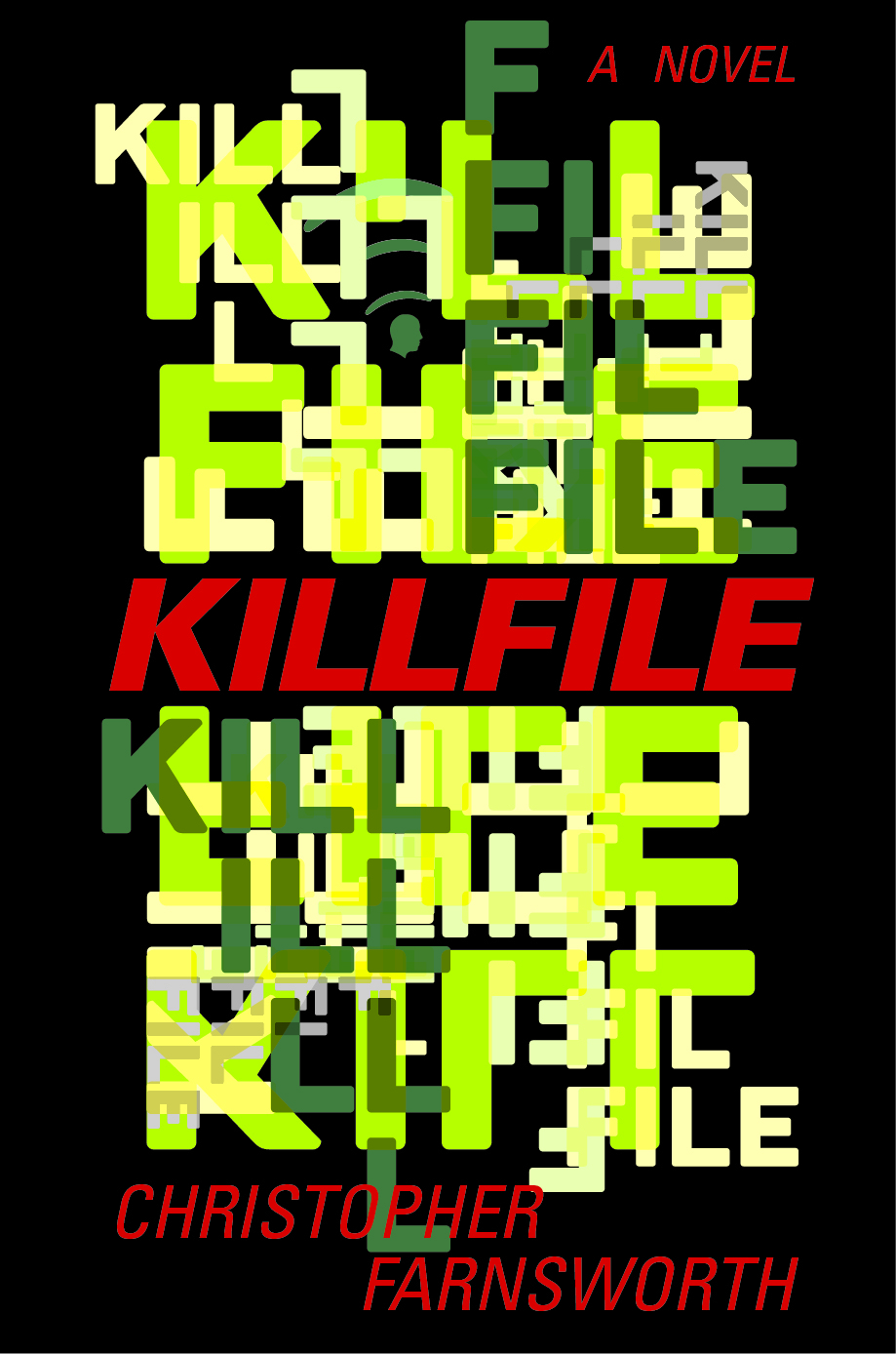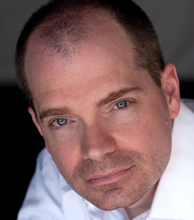Killfile by Christopher Farnsworth
 By E. M. Powell
By E. M. Powell
I’m sure we all treasure the wisdom of our friends. But I’m equally sure we envy Christopher Farnsworth this particular relationship: “A good friend of mine says that writing is painting yourself into a corner—and then flying out.” Even better is that Farnsworth has acted upon this advice. His latest release, KILLFILE, most definitely flies and then some.
For starters, it has such an original and compelling premise. Psychic John Smith was trained by the CIA to weaponize his unusual talents. Not only can he hear people’s thoughts, he can also bend the will of others to his own. He has moved on from government service to private consultancy to the very wealthiest. Hired to investigate a young software genius and recover priceless intellectual property, he rapidly finds himself the target of people willing to kill to him for his talents. And he’s no longer alone. Smith has to use his gift to protect himself and a young woman caught in the crossfire—no matter what it takes.
Now, there may be those for whom this premise has a whiff of the “look into my eyes” or trumpets at séances. I can assure you that nothing could be further from the truth with KILLFILE. Farnsworth’s creation of John Smith is masterful. Smith’s gift verges on intolerable as he seeks silence and peace from the non-stop banal chatter in the heads of others. Worse, he absorbs terror, fear, and physical pain too. Within the first couple of pages, Smith’s world was reality for me. Add in relentless action and humor drier than martini-dissolved bone, and you have a winner.
His premise of the psychic spy had a long gestation, says Farnsworth. He credits his early reading in his junior high library for planting the seed. “My research started when I spent way too much time as a kid in the weird sections of the library, reading the dodgy books about psychic phenomena, unknown creatures, and other strange stuff. It left me with lots of odd facts stuck in my head—like the story of Wolf Messing—that eventually mutate into ideas.”
The story of Wolf Messing is fascinating. “Messing was a Russian performer who lived in Moscow after escaping Germany during WWII,” explains Farnsworth. “He was supposed to be able to project his thoughts into other people’s minds, much the same way my character John Smith does in KILLFILE. Messing allegedly walked into a Russian bank, handed over a blank piece of paper, and walked out with 100,000 rubles. The bank manager supposedly had a heart attack afterward when he realized what had happened.”
Enter Joseph Stalin. “So Stalin heard about this and challenged Messing to enter the Kremlin without permission. The next day, he looks up from his desk and Messing is there, standing in front of him. Messing said he simply projected the words “I am Beria’ into the minds of every guard he saw—telling them he was the head of the Soviet secret police, probably the one man in Russia scarier than Stalin. Nobody stopped him and he walked right into Stalin’s office.”
With such accounts, no wonder the CIA decided to pay attention. “I’ve read about government efforts to create or train ‘psychic spies’ for years,” says Farnsworth. “And I always thought it would be interesting to write a story with a telepath at its center — someone who has no choice but to listen to the thoughts of everyone around him. It seemed more like a curse than a gift, but I couldn’t really figure out what to do with the idea.”
It was his previous career as a journalist that provided the solution. “I used to cover high-tech business when I was a reporter, and I wondered how far these companies, with billions of dollars on hand, would go to protect their ideas. Then I read an article by Michael Lewis about a programmer who worked for an investment bank and was arrested and jailed for allegedly stealing some of the firm’s intellectual property. I realized that a psychic spy would be the perfect answer—someone who could go into the minds of people and actually check their thoughts.”
Farnsworth is also a screenwriter and I wondered which for him was the more challenging to write. “Novels are harder, and take longer, but I still like them better because I get to move across so many different perspectives. As much as I like writing scripts, they are necessarily limited. I enjoy the discipline of trying to convey as much as I can through dialog and action—which is all the viewer of a TV show or movie gets to see in the finished product. And scripts are shorter, which is always a plus.”
“But for a novel, I get to do whatever I can imagine. As long as I can make it work on the page, then it doesn’t matter if the special effects exist or what a producer might think of it. I get to take the idea and run with it as far as it can go. For all the research that I do, most of the work and joy in a book for me is in the imagination of the people, places, events, and (usually) explosions. In those moments, there are no rules except the ones I choose to follow.”
And what of the days when a novel refuses to co-operate with its writer? “There are days when nothing seems to make sense and I can’t seem to find my way out of the plot,” he acknowledges. But he has the perfect solution and one worth taking note of. “Then I usually kill someone or start a fight. That almost always helps.”
Another help is the arrival of John Smith. ‘Honestly, it felt liberating to start a new novel from scratch with a new character.’ Farnsworth says he does intend to return to his The President’s Vampire series with lead Nathaniel Cade. ‘I love going deeper into a story I’ve already created and I do intend to get back to Cade, but there’s a lot of fun in inventing new rules for a new game. As a matter of fact, I’m at work right now on the next John Smith adventure, which has the working title Flashmob. It should be out next year from William Morrow.’
As for the pipeline, Farnsworth has plenty more ideas knocking around. “There are a lot of things I’ve learned that I haven’t yet found a home for in my fiction. One of my favorites is the meeting between Harry Houdini and Theodore Roosevelt in 1914. My wife’s grandfather was actually there with them; we have a picture of it in our home. Someday I’ll find the right story to wrap around that.”
Now, if only I were a mind reader…
Some lines are impossible to resist.
*****
 Christopher Farnsworth is the author of THE ETERNAL WORLD and the President’s Vampire series, which has been optioned for film and television and published in more than a dozen countries. A screenwriter and former journalist, he lives in Los Angeles with his family.
Christopher Farnsworth is the author of THE ETERNAL WORLD and the President’s Vampire series, which has been optioned for film and television and published in more than a dozen countries. A screenwriter and former journalist, he lives in Los Angeles with his family.
To learn more about Christopher, please visit his website.
- On the Cover: Nancy Bilyeau - May 31, 2022
- Up Close: Carole Lawrence by E.M. Powell - March 31, 2022
- International Thrills: Hans Rosenfeldt - December 31, 2021
